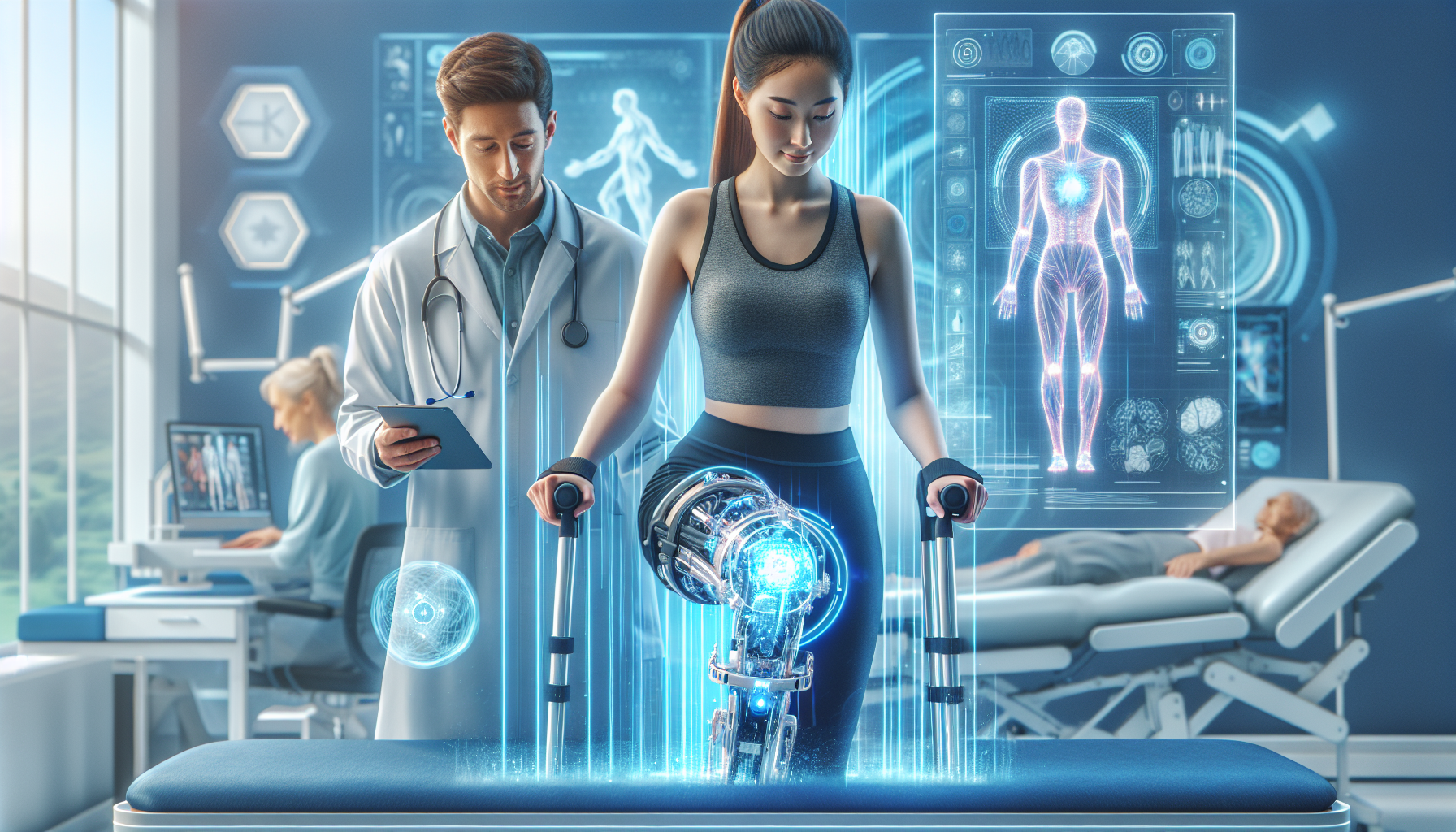Artificial intelligence (AI) is changing how we approach medical rehabilitation, offering new possibilities for patients recovering from injuries or diseases, especially those with mobility challenges. This technology is making rehabilitation more personal and effective, giving hope to those who struggle with traditional methods.
Creating Personalized Rehabilitation Plans
AI analyzes each patient’s unique data—like medical history, physical condition, and progress—to build personalized rehabilitation plans. These tailored plans adapt continuously, ensuring that patients receive the most appropriate therapies for their specific needs at every step of their recovery.
Harnessing Large Data Sets
In the field of rehabilitation medicine, AI can sift through massive amounts of healthcare information to uncover patterns that humans may miss. It uses these insights to design personalized care strategies, ultimately improving outcomes for patients. The key to success here lies in how the data is collected, trained, and interpreted.
Advanced Technologies Enhancing Rehabilitation
- Virtual and Augmented Reality: Cutting-edge technologies like virtual reality (VR) and augmented reality (AR) immerse patients in interactive rehabilitation experiences. For instance, stroke survivors can benefit from engaging scenarios that stimulate both cognitive and physical recovery.
- Telerehabilitation: AI supports remote rehabilitation through telemedicine, allowing patients to engage in therapy sessions from home. This increases access to ongoing care and keeps patients motivated.
- Wearable Devices: AI-enabled wearables track movement, posture, and muscle activity. With real-time feedback, these devices prevent overexertion and help ensure patients maintain the correct form during exercise, letting therapists adjust training plans as needed.
- Machine Learning and Analytics: Machine learning algorithms analyze biomechanical data to identify risk factors and predict injuries. This preemptive approach enables trainers to design and supervise rehabilitation plans more effectively.
Exploring Opportunities and Challenges
Opportunities
- Accessibility: AI advances make rehabilitation more reachable for patients with mobility issues, enabling them to participate in therapy from their own homes.
- Efficiency: By automating routine clinical tasks like data analysis, AI allows clinicians to concentrate on the more intricate aspects of patient care.
- Personalization: AI’s ability to develop and adjust customized treatment plans enhances their effectiveness and relevance to each patient’s recovery journey.
Challenges
- Data Quality and Availability: Limited access to large and diverse data sets poses a significant hurdle for machine learning in rehabilitation. Inconsistent or noisy data can lower the effectiveness of AI models.
- Integration into Clinical Workflow: Incorporating AI into established clinical processes comes with challenges, such as ensuring data can move seamlessly between systems and addressing resistance to change in practice.
- Standardization and Adaptability: AI systems must be flexible enough to meet the varied needs of individual patients, as standardized approaches may not work for everyone.
Envisioning Future Developments
The outlook for AI in medical rehabilitation is bright, but continual research is essential to tackle ongoing challenges. Key areas for development include:
- Enhancing Data Collection and Interoperability: Improving the sharing of data among different healthcare settings ensures clinicians have access to comprehensive patient information.
- Developing More Adaptive AI Models: Future models should automatically adjust the complexity of exercises according to each patient’s cognitive profile and progress.
- Expanding Access to Telemedicine: Further integration of telehealth and virtual therapy can broaden access to essential rehabilitation services for those with mobility limitations.
In summary, AI is reshaping medical rehabilitation by making care more accessible, personalized, and effective. While challenges remain, the potential rewards are significant, and ongoing research is driving the movement toward broader implementation in real-world rehabilitation practices.

Leave a Reply